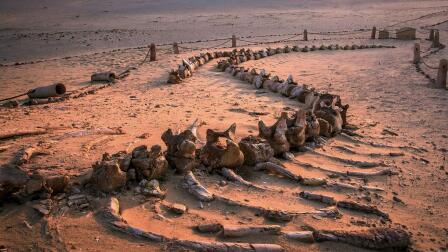Back to Show
Changing Seas
The Future of Seafood - Trailer
It is estimated there will be two billion more people on the planet by mid-century. To feed this booming world population, more fish will need to be farmed than ever before. One way to increase fish production in a sustainable way is to move aquaculture operations offshore – where there is plenty of available space and strong currents flush out the pens to avoid polluting sensitive ecosystems.
Sign up now for inspiring and thought-provoking media delivered straight to your inbox.
Support Provided By

Unlock with PBS Passport
27:14
Scientists studying the coastal Everglades make some perplexing discoveries.

Unlock with PBS Passport
27:01
The Cayman Islands are home to the last great reproductive population of grouper.

Unlock with PBS Passport
29:33
Scientists work to identify and link a devastating coral disease to a human pathogen.

Unlock with PBS Passport
27:16
Scientists use satellite tags and DNA forensic tools to track tiger sharks.

Unlock with PBS Passport
26:47
Oceanographers continue to study the long term effects of an oil spill.

Unlock with PBS Passport
26:46
A group of scientists tests sea sponges for potential anti-cancer properties.

Unlock with PBS Passport
26:46
Explore the emerging science of coral reef restoration.

26:49
The invasive lionfish is a major threat to biodiversity and a stressed coral reef.

Unlock with PBS Passport
26:48
Examine the important role seagrasses and mangroves play in the ocean’s web of life.

Unlock with PBS Passport
26:51
Take a look at the health of the bottlenose dolphin.

Unlock with PBS Passport
26:51
The Changing Seas crew shadows a team of research divers in Dry Tortugas National Park.

26:45
Scientists develop sustainable aquaculture methods to take the pressure off wild fish.









